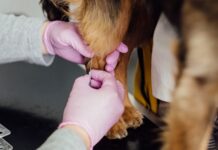Cruising along beautiful Canadian terrains happens to be a gratifying experience until you land in a wildlife collision.
Well, it’s a moment that every driver dreads. Interestingly, the animal turns out to be a deer four out of five times! If you are driving during the fall, it pays to be extra vigilant about deer activities.
Deer account for 80% of wildlife collisions in Canada, while bears, elk, moose, and coyotes account for another 20%. Now you must be wondering what to do if you hit a deer.
Will it affect your car insurance premiums? This explains why most car owners reach out to reputed insurance experts in Halifax to find affordable insurance policies.
What to do if you hit a deer in Canada
Worried about what you should do when you hit a deer? Here’s how you can go about it:
1. Stop your car
If you accidentally hit a deer, be responsible enough to handle the situation carefully. Stop the car and park it at a safe place by the road. Make sure to stay in control of the vehicle. Try not to swerve the car if a deer comes in the front. Instead, try to brake the car to a halt.
Despite all these efforts, if you hit a deer, park your car without blocking the traffic. Parking in the middle of the road can lead to further collisions with other vehicles. Now, turn the hazard lights on to alert other cars coming down your way.
2. Call the police
Now that your car is safe by the side of the road, dial 911. With law enforcement professionals on your side, you can safely manage the crisis. For instance, your insurer might ask for a police report when you file a claim if your vehicle sustains damage.
Also, note down any specifications about the landmarks surrounding you if you aren’t aware of the road’s name. The police might also help direct other traffic around your vehicle to ensure safety. Besides, they would move the remains of the deer away from the road.
3. Take photos and videos
By the time the Police arrive or even after their arrival, take photos and videos of the accident site. Once again, documenting the scene will help your insurer process the claims faster. They would also understand how the animal strayed in your way. Keeping things transparent reduces the chances of your insurance claim getting rejected.
However, take care while clicking the photos. Don’t linger in the middle of the road for too long. Also, don’t go too close to the injured animal.
4. Leave the deer alone
It might be out of your guilt of hitting the animal that you try to find out whether it’s alive. Drivers often get too close to the animal to see how bad the injury is. Even if deer are harmless, approaching a wounded animal is a bad idea. Injured creatures often lash out violently in pain and fear. Deer has sharp hooves, which can result in serious injury. Also, stags have sharp antlers, which can prove dangerous if you approach them.
If you think the deer needs help, reach out to the wildlife control authorities around you. Generally, the Police should deal with this matter.
5. Inform your insurer
After collecting the necessary documentation, reach out to your insurer, informing them about the accident. The earlier you inform them, the faster they can open a claim for any possible damage. Also, furnish the Police report of the accident to validate your information. In most cases, your insurer will process the claim if you follow the recommended guidelines.
Wildlife collisions and filing insurance claims
Colliding with a large animal can damage your car significantly. In case your car hit a deer, you might have to get some parts, like the headlight or the frontal area, repaired. Under serious conditions, the damage might be even graver.
So, your comprehensive or collision coverage will come to your rescue in these conditions. Although this policy is not mandatory, it makes sense to purchase one as you can never rule out the chances of colliding with animals or other objects.
Now, the nature of the accident determines the type of coverage that should work.
- You might hit a dead deer that had already been lying on the road. In this situation, your insurer would cover the accident under the collision insurance policy.
- The deer might suddenly have come your way. If you hit it with no options left but to smash the brakes, the comprehensive policy would work for you.
Knowing what to do when you hit a deer can be crucial to your insurance claim process.
Will your car insurance rate increase if you hit a deer?
Normally, insurers don’t increase the premiums if you are a part of a wildlife collision. They consider drivers not to be at fault during these accidents. Unless you have several other claims during the same time, your premiums will remain the same.
Now, there can be a condition where you collide with a deer and then swerve to hit a tree or a car. In these situations, your premiums might increase. Once you talk to your insurance broker, the professionals recommend affordable policies to keep premiums low.
How to avoid deer collision
Now that you know what to do if you hit a deer, let’s discuss how to avoid hitting a deer in the first place.
- Deer activities in Canada increase during the fall, particularly between evening and midnight. Drive slow if you are passing through wooded terrains.
- October to January is the mating season for deer. So, stay alert as you cruise along the roads during this time.
- During May and June, deer activities increase once again when they have babies. Being vigilant on the road would help you in preventing accidents.
Honk as you pass through these stretches, and make sure to be visible to the animals. This will help you avoid deer collisions to a certain extent.
Endnote
If you happen to hit a deer while driving, the best course of action is to remain calm and keep yourself safe. Pull over on the side of the road if it’s possible or turn your hazard lights on if not. Call 911 immediately and report what happened so that they can assist with traffic control or any other help needed. If it’s necessary, contact local law enforcement for further assistance in dealing with an injured animal.
Most importantly, take care of yourself first by getting checked out at a hospital if you feel any symptoms after hitting a deer. You should also be sure to document all information like location and time as this can be helpful when filing insurance claims later down the line.











